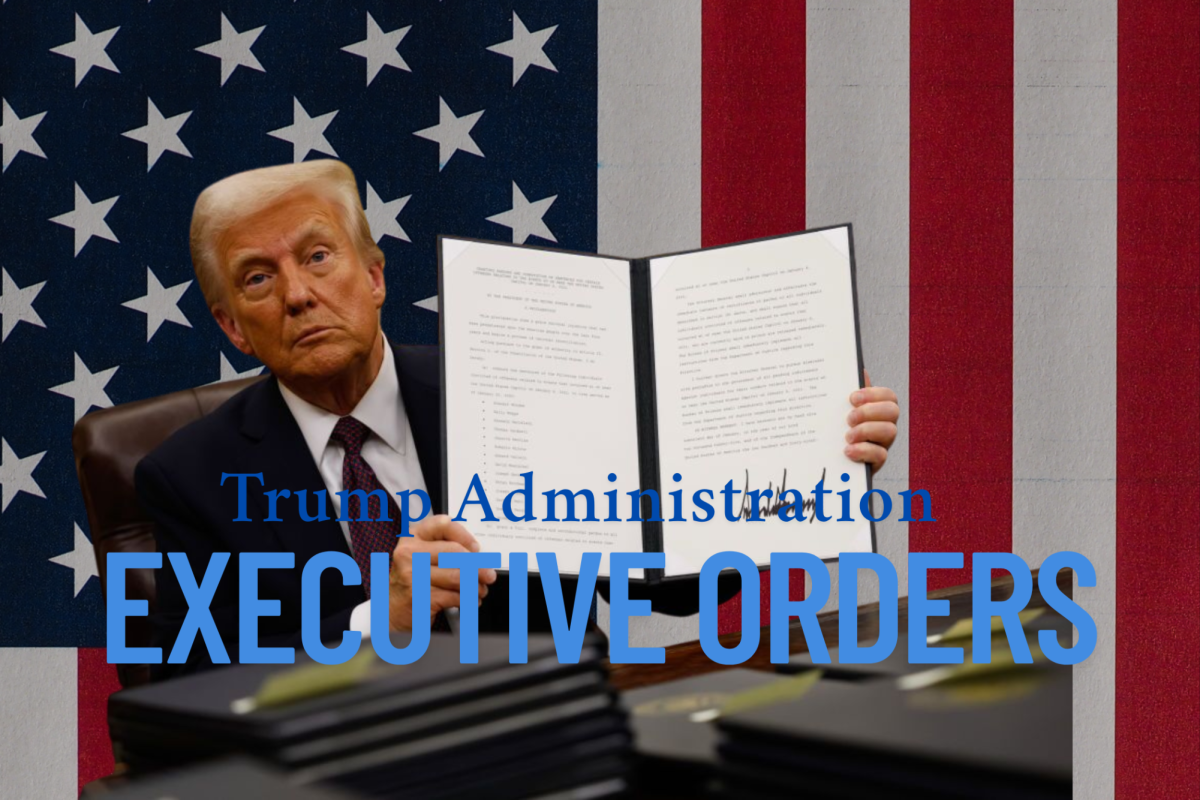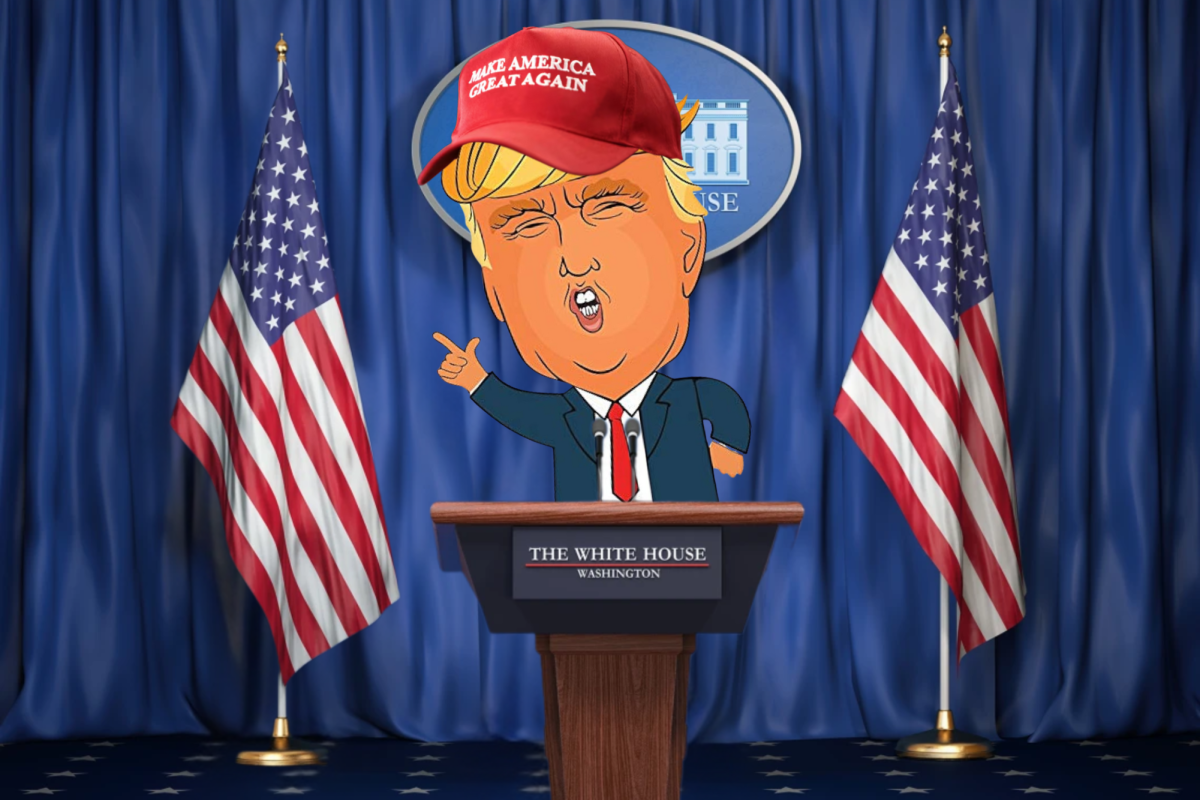Recently, the United States has taken a series of steps that seem to signal a departure from its role as a global leader and reliable ally.
These actions threaten the stability of the world and are rapidly deteriorating America’s reputation as we inch closer to an isolationist autocracy.
From withdrawing from key international agreements to adopting extremist domestic policies that have drawn criticism from allies, the United States is charting an isolationist and unpredictable path on the global stage.
These changes risk straining relationships with NATO and muddling the United State’s reputation worldwide.
One of the hallmark actions of this agenda is the U.S. withdrawal from major global agreements.
In 2017, the Trump administration withdrew from the Paris Climate Accords, which was a withdrawal from global efforts to fight climate change.
This decision was reversed under the Biden administration in 2021 and then reinstated under the Trump Administration early this year.
The constant back and forth reflects a scattered and unprofessional federal government, hardly the components of a global power claiming world superiority.
More recently, the Trump administration has followed up on their 2020 pledge to leave the World Health Organization (WHO), with the administration issuing an executive order the first day of his second term to withdraw from the WHO, pause funding, and call back all U.S. personnel working in any capacity with the WHO.
According to an article by the New England Journal of Medicine, “severing the long-standing ties and scientific collaborations between the United States and the WHO and slashing future U.S. financial support to the WHO will have catastrophic effects on both domestic and global health.”
More specifically, the Trump “Administration’s cut of more than 90% of its foreign aid contracts and its crackdown on diversity, equity, and inclusion (DEI),” are threatening the pillars of moral human rights that have stood as the cornerstone of U.S. freedom for decades, said an article in Time Magazine.
One might think that the U.S. is spending copious amounts of money in foreign affairs and these cutbacks are needed to clear “significant waste stemming from decades of institutional drift” according to an internal memo by the Trump administration obtained by AP news.
However, these claims are false and foreign spending accounts for only a small percentage of the federal budget.
According to PEW Research Center, since 2001, “foreign aid has ranged between 0.7% and 1.4% of total federal outlays.”
Despite only being a fraction of the budget, the organizations this administration is attempting to halt provide life saving services across the globe.
According to Better World Campaign, “Relying on U.S. funding for half of its budget, the World Food Programme (WFP) has been forced to shut down its Southern Africa office.”
Funding cuts will also cause the end of “key WFP programs targeting child malnutrition in Afghanistan, Syria and Yemen,” according to Better World Campaign.
Apart from the apparent moral concerns, such behaviors saw allied nations scrambling to fill the leadership void and created the image of America as an unreliable ally.
Within the United Nations, America has been criticized for inconsistent votes with its fellow NATO democracies.
For instance, repeated vetoes and opposing votes on condemnations of human rights violations in key areas such as Gaza or Ukraine have pitted the U.S. against NATO allies.
One such example of this is how “the United States joined Russia to vote against a UN General Assembly resolution condemning Russia’s war against Ukraine Monday in a stunning shift from years of US policy,” said CNN Reporter Jennifer Hansler.
As shown above, the U.S. has made provocative steps towards greater engagement with Russia while its European allies confront Russian aggression, further diminishing the relationship between the U.S. and other NATO members.
Publicized meetings between Russian leaders and U.S. officials have occurred during the backdrop of Russian involvement in Ukraine and interference with Western democracies.
Such gestures toward Russia, together with reluctance to commit wholeheartedly to sanctions or military support to Ukraine, create strains in NATO and cast doubt upon U.S. dedication to allies.
Loss of confidence in American leadership risks leaving allies uncertain whether they can still rely on America to assist in resolving world crises.
Domestically, the U.S. has pursued protectionist economic policies that strain transatlantic relations.
Tariffs on key imports triggered retaliatory tariffs from the European Union, with the EU “to impose retaliatory tariffs in response to the resumption and expansion of tariffs on imports of steel and aluminium into the US,” said an article on WhiteCase.com.
The tariffs not only bruised economic ties but also sowed seeds of distrust among partners who have always relied on consistent U.S.-led trade agreements.
Put these alongside the issues that the U.S. has experienced its own inclusion on global watchlists for human rights such as the CIVICUS Monitor Watchlust.
In a press release, CIVICUS said, “A spate of arbitrary executive orders has resulted in mass firings of federal government employees coupled with the takeover of key positions in the administration including the Justice Department and the Federal Bureau of Investigation by Trump loyalists.”
The article goes on saying these setbacks are likely to impede constitutional freedoms of peaceful assembly, expression, and association.
Reports of family breakups and shabby detention centers have followed in the wake of tarnishing the country’s image as a beacon of freedom and justice.
Amnesty International and Human Rights Watch have shed light on these issues, highlighting reforms that live up to international human rights expectations.
Climate change, human rights, and geopolitical security require robust, collective action—action that is discredited when a leading player steps back.
As the reputation of the United States continues to decline, the path forward in this globalized world is uncertain.
Unless the fierce partisan lines that divide this nation are softened, one should expect to see the continued embarrassment of the United States on the global stage.
























































